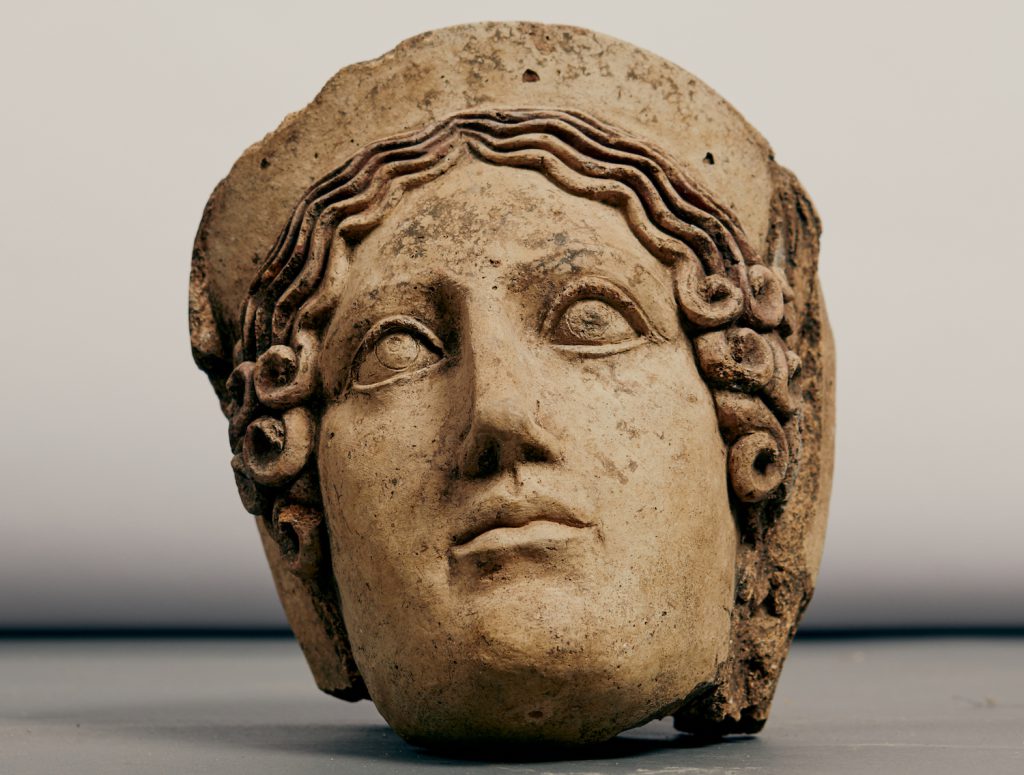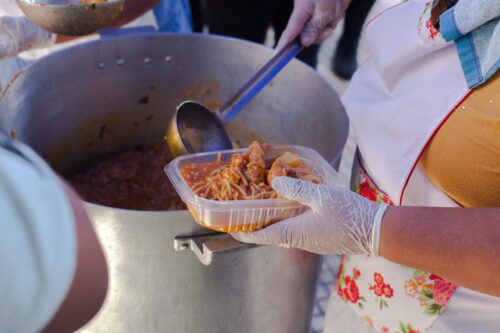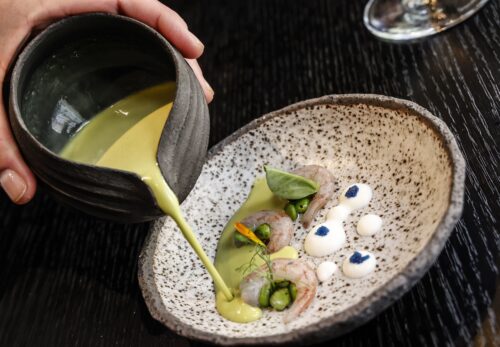Head of a Maiden

My poem “Head of a Maiden” is my response to the recent New York Times article “Looking for a Stolen Idol? Visit the Museum of the Manhattan D.A.” According to the article, the 8 1/2-inch terra-cotta head of a maiden, valued at more than US$100,000, was seized by the district attorney’s office in 2021 from a New York City–based gallery.
The poetic maiden “speaks” of being looted from her original site near Rome and held by a trafficker of Italian antiquities before being acquired by the gallery. This sculpture is rare because it has the fingerprints of the artisan who molded it millennia ago.
In telling her story of theft and separation, I compare the maiden to the mythic figure, Persephone, her Roman “MeToo sister,” and suggest the similarity of her experience to that of countless mortals who are also trafficked and lost in an underground of despair and desperation.
Head of a Maiden
I wait, wait in the district attorney’s evidence locker,
the city’s underworld for looted, smuggled, seized antiquities.
I was stolen, trafficked by addicts hooked
by the high of my beauty, collectors coveting
the private gaze, time’s appreciation.
Crated and padlocked in darkness,
I wait, wait for the curator’s gloved hand
to gently brush my face under bright light,
to magnify, authenticate, and name me:
“Head of a Maiden, fourth century B.C., Etruscan, terra-cotta.”
Peering out from under a crown of curls
I plead, plead to tell my story of
abuse and abduction, theft and separation,
loss and confinement, desire for reunification
with the rest of my body, my heritage, my kin.
I wait, wait like Persephone in winter’s cold storage
for a mother’s love to steal away my grief,
negotiate with the city-state mapped
over my ancient homeland
for repair, repatriation, return to fecund light.
Fingerprints of the artisan who made me,
swirls impressed, fired in clay,
intimate that in art and story
you, you too, may endure
the push and pull, the thief of time.

























